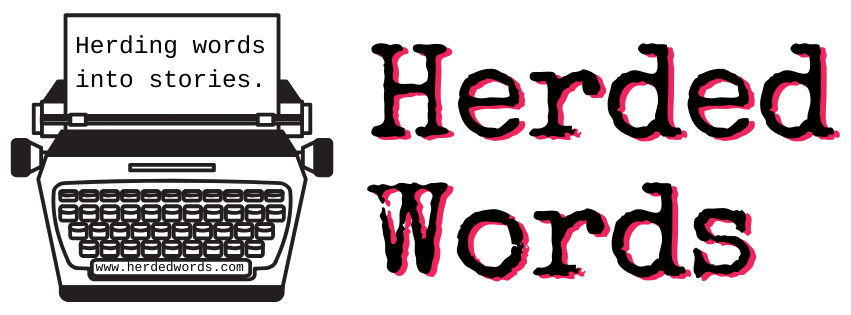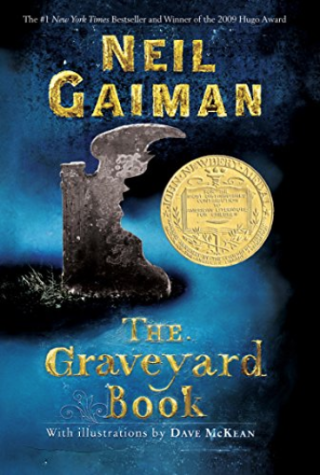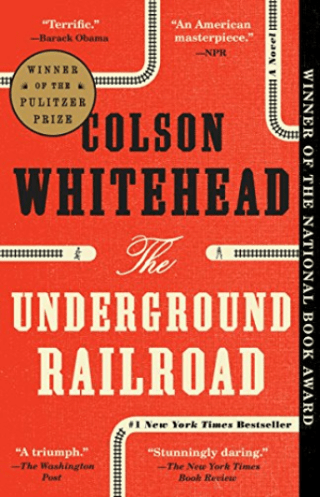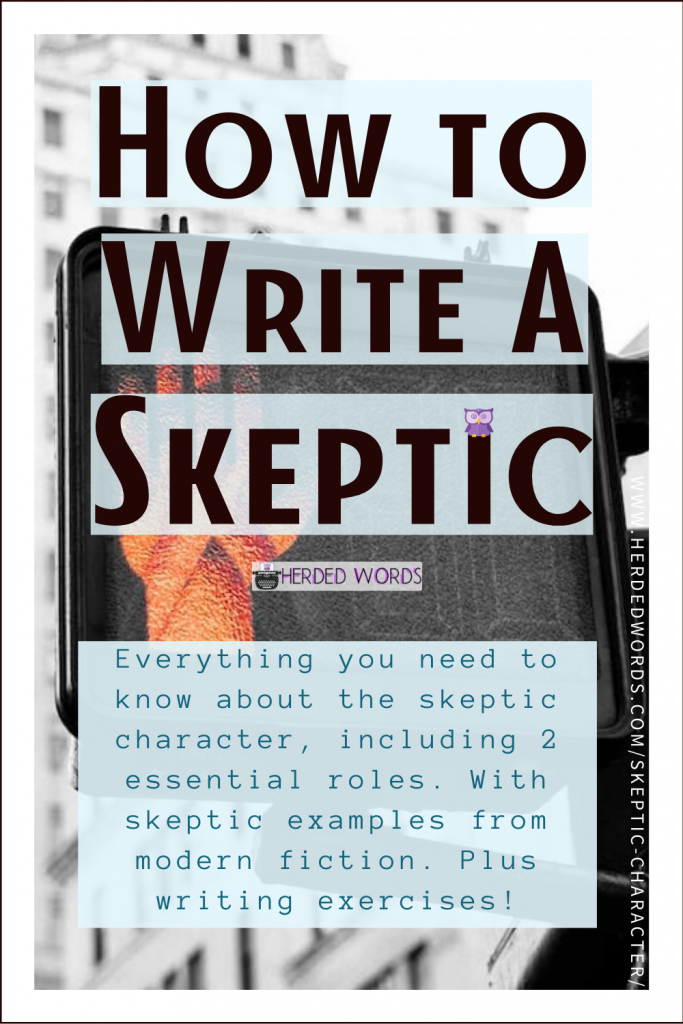
Listen to this post
Herdedwords.com uses affiliate links. This means we receive a commission on the sale of certain items. This is at NO additional cost to you. Visit the policies page to learn more.
The word mentor might make you think of old men with long beards who endlessly invoke their sage (and boring) wisdom. Don’t do this. Don’t make your mentor a boring stereotype archetype.
A mentor doesn’t have to be obvious. In fact, your reader doesn’t even need to realize you have a mentor character. As long as YOU (the author) know who you’re writing and why; that’s enough.
The mentor is a teacher, or guide, or guard, but they are not in control of the story or the choices of the protagonist. The mentor represents the reality of the situation and the potential to do the right thing.
Some of the best mentors are imperfect people who experienced a similar event and didn’t handle it well.
Table of Contents
Qualities of a Worthy Mentor Archetype
Here are seven qualities that make for a worthy mentor character.
#1: A Memorable Personality
There are many different ways to give your mentor a memorable personality.
Mentors with bizarre personalities are common in many genres. A mentor with a bizarre personality makes the protagonist rely more on themselves to learn valuable lessons. Is the mentor being crazy or wise? It’s not always easy to tell and so the protagonist can’t use the mentor as a crutch.
Other types of memorable mentor personalities include grouchiness (far less polite words could be used), naivete, etc.
#2: They’re Only Temporary
At some point, the mentor permanently leaves the protagonist on their own. It’s common for the mentor to die. Their exit occurs after they’ve provided all the information the protagonist needs to know but before the protagonist has figured out what to do. The protagonist now needs to figure it out on their own.
#3: Valuable Advice to Share
Your mentor has to have something valuable to share with or teach the protagonist. This is really the most important part of being a mentor.
They might not be the best mentor available but they need to have the most valuable information.
#4: They’re not Perfect
A mentor is a flawed character like all others. In fact, your story is likely to be more interesting if their flaws are significant enough that the protagonist ignores their advice/teachings.
#5: They Cannot Solve the Issue
Even though the mentor is knowledgable and provides valuable information and education to the protagonist, they cannot solve the story’s issue. If they could, they would.
#6: They’re Secretive
Mentors aren’t typically a forthright lot. They tend to keep secrets or hold information back.
#7: They’re Autonomous
Mentors are not props to be used by the protagonist whenever necessary. They’re complete, developed, autonomous characters.
Mentors may make some of their choices based on the same fight the protagonist is involved in – BUT – they also have their own agenda. They have their own life.
They’re also not all-knowing. That’s a tired cliche. Your mentor does not have all the answers, make sure you don’t treat them like they do.
Roles/Responsibilities of a Mentor Archetype
These are three common roles and responsibilities of the mentor character.
#1: To Guide the Protagonist
It’s the mentors’ role to guide the protagonist through the trials of the plot. They’ll provide support in one or more forms: emotional and mental support, training and education, etc.,
#2: To create conflict or Provide Encouragement
News Flash: Your mentor and protagonist don’t have to get along. They might not like each other. They might not want to be a mentor/mentee. But they are.
If they do like each other, the mentor can provide encouragement and act as a role model.
If they don’t like each other, the mentor can provide conflict.
#3: Don’t save the day
Your mentor can help your protagonist out of difficult situations, especially at the start of the journey. As the journey progresses, your mentor should be less present in these scenes.
Because – Your protagonist should ultimately save themselves. The mentor should not swoop in at the last minute and fix everything. Talk about boring!
Can You Have More than One Mentor?
Yes, but they have to be mentors of different things.

Examples of the Mentor Archetype
Check out these examples of the mentor archetype from modern award-winning and bestselling novels.
THE GRAVEYARD BOOK
THE GRAVEYARD BOOK, published in 2008, is a children’s fantasy novel by Neil Gaiman.
THE GRAVEYARD BOOK won the 2009 Hugo Award. Disney is planning a movie based on the novel.
Mentor: Silas
#1 – Memorable
Silas lives in the graveyard, but he’s not a ghost. He might be a vampire (you’ll have to interpret the things said about him and decide for yourself).
#2 – Temporary
Silas appears throughout the entire novel, right up until the end. Although, it’s suggested that once Bod leaves the graveyard he won’t see Silas anymore.
#3 – Advice
Silas is the only resident of the graveyard who leaves it. He provides Bod will all his information about the world.
#4 – Imperfect
Did I mention he might be a vampire?
#5 – Can’t Solve
Silas can’t make Bod safe from the Jacks which is why he’s hidden him in the graveyard.
#6 – Secretive
There’s a lot that Silas doesn’t talk about. There are hints of a terrible past (especially at the end). Where does he go all the time?
#7 – Autonomous
Silas is devoted to keeping Bod safe, but he maintains his own life. Silas has left Bod in the care of the graveyard ghosts.
#8 – Don’t Save the Day
Silas helps with Scarlett at the end and provides Bod with the means of living outside the graveyard. BUT, Bod is the one who saved himself and Scarlett from Jack.
Role: Guide
Silas guides Bod through life in the graveyard and the outside world.
THE UNDERGROUND RAILROAD
THE UNDERGROUND RAILROAD, published in 2016, is a historical fiction novel by Colson Whitehead. Amazon Studios is planning a limited drama series based on the novel.
THE UNDERGROUND RAILROAD won the 2017 Pulitzer Prize for Fiction and the 2016 National Book Award for Fiction.
Mentor: Caesar
There are multiple mentors in THE UNDERGROUND RAILROAD – people who play a crucial role in Cora’s understanding of the (new) world around her. Caesar is her first mentor.
#1 – Memorable
Caesar is a pretty calm and go with the flow type person. It’s a startling contrast to the characters that surround him in Georgia.
#2 – Temporary
Unfortunately, Caesar can only guide Cora so far. He dies when they’re found in South Carolina.
#3 – Advice
Caesar knows a lot more about the world than Cora does and he helps her navigate her beginnings as a free woman.
#4 – Imperfect
Caesar doesn’t have any severe flaws, but he also isn’t idolized. He’s treated like a normal person in the novel.
#5 – Can’t Solve
Caesar could escape without Cora. However, he doesn’t. It’s not clear why he wants her to go with him.
#6 – Secretive
Caesar isn’t secretive. There are things he doesn’t talk to Cora about (dating particularly) but that seems more about discretion than secrets.
#7 – Autonomous
Caesar lives his own life in South Carolina. Cora is a part of it and there are aspects of their relationship that make them a team. However, they aren’t together. Caesar isn’t dropping in only when it’s convenient for Cora (and the story).
#8 – Don’t Save the Day
Caesar helps Cora save herself but Cora has to choose and fight.
Role: Guide
Caesar acts as Cora’s guide to the world. He lived in a more accepting society before he came to the Randall plantation. He can read, and has experience dealing with people. Cora needs him to help her through the escape and her start in South Carolina.

Writing Practice
It’s time to practice the mentor archetype character. Check out these writing prompts and exercises and you’ll master the mentor in no time!
Exercise: Analyze More Novels
Every genre will be a little different. Choose some of your favorite novels and some novels in the genre you want to write in (if they’re different). Analyze the mentor of each novel.
- Who is the mentor? How do you know? Are they the only mentor?
- What makes their personality memorable?
- Are they in the whole novel, or are they a temporary character?
- In what ways are they imperfect?
- Why can’t the mentor solve the issue themself?
- What secrets does the mentor keep?
- Are they an autonomous character? How?
- What role do they serve (guide, conflict, encouragement, other)?
Exercise: Adapt LITTLE RED
Now that you understand how the mentor archetype works, it’s time to add one to LITTLE RED-CAP.
Your task: Create a mentor for RED. Write a scene of at least 400 words that includes your mentor.
Prompt:
The government is buying babies, but it’s classified. A woman is thinking of selling hers.
Your Task: Write a scene of at least 400 words featuring a mentor.
A Wise Man Once Said
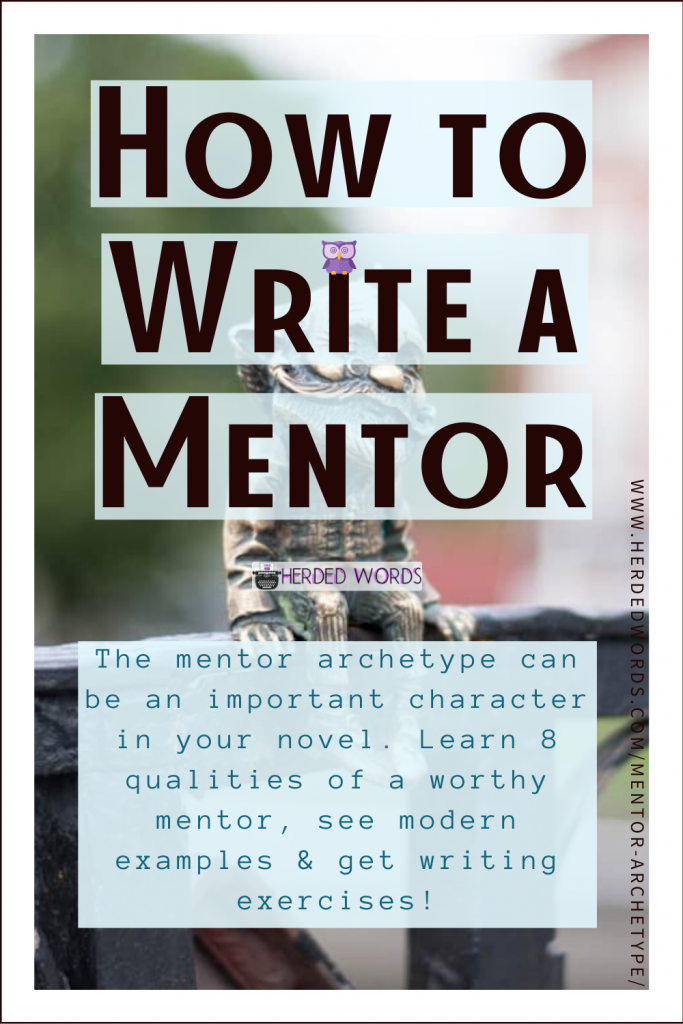
Your mentor needs to be an autonomous individual – who also happens to mentor your protagonist.
Follow this guide to write a worthy mentor archetype character.
When you’re ready for another character, you should check out How to Write a Skeptic Character next.
Like this post? Please PIN IT and follow me on social media. Thanks!
